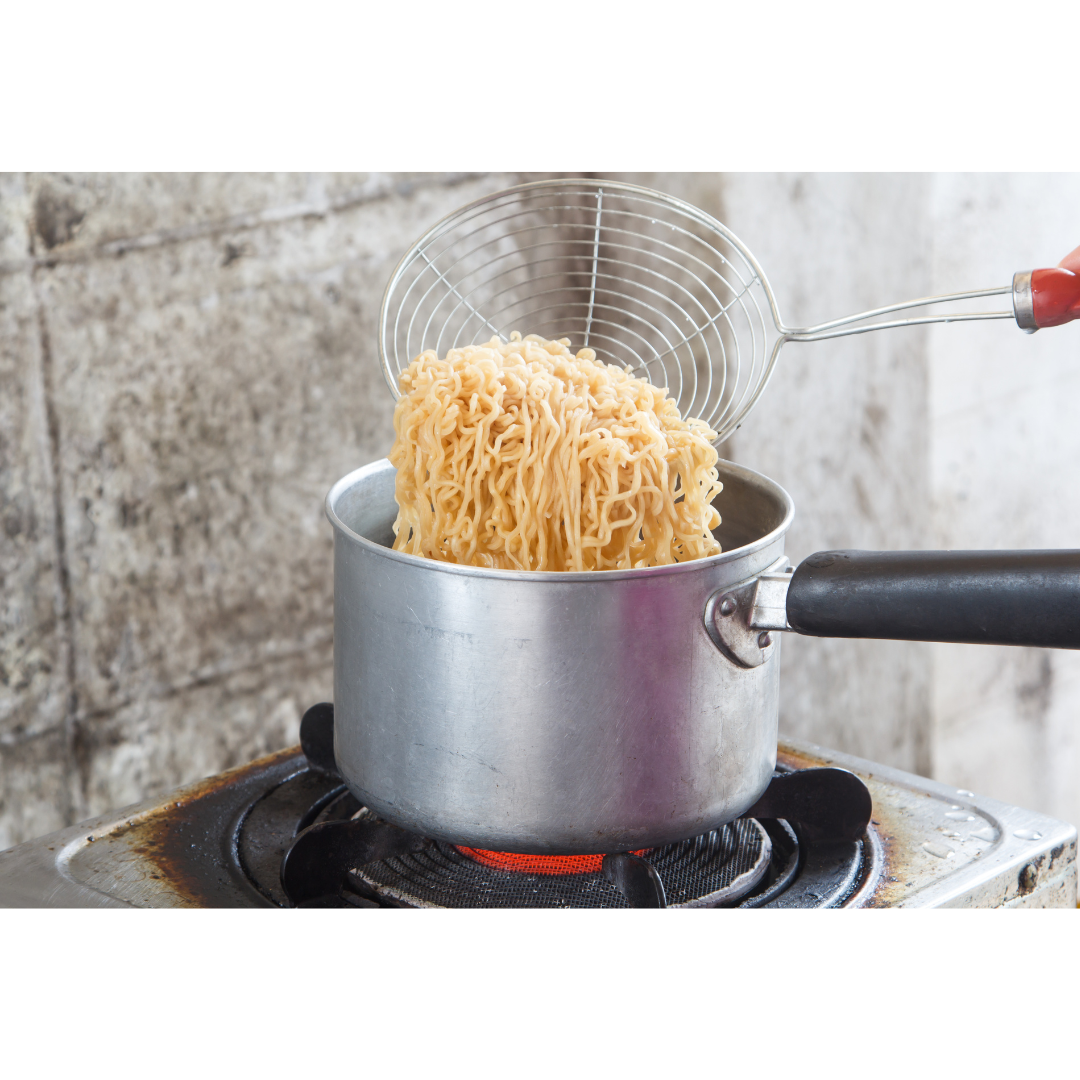Embarking on a fitness journey requires more than just hitting the gym or engaging in rigorous workouts. While exercise is undoubtedly important, the significance of a well-balanced diet cannot be overstated. A well-balanced diet is integral, providing the necessary fuel, supporting exercise performance, promoting muscle growth and recovery, aiding in weight management, and improving overall health and well-being. By prioritizing nutrition alongside exercise, you set yourself up for a successful and sustainable fitness journey, unlocking your full potential and achieving your desired goals. Remember, it’s the combination of both diet and exercise that leads to lasting fitness transformations. Sometimes, people get bored by the monotonous diet food and thus cannot commit to healthy eating and ultimately falter on the path of their fitness transformation. Does that mean you can’t go out and must be stuck at home to stick to your diet?
Sometimes, people get bored by the monotonous diet food and thus cannot commit to healthy eating and ultimately falter on the path of their fitness transformation. Does that mean you can’t go out and must be stuck at home to stick to your diet?
The answer Is NO…!! There are always healthy options, healthy food that you can choose that can help you to eat out but still stick to your idea of your fitness. The only important thing is to be mindful and select the options and ways to enjoy outside food while still sticking to mindful eating.
Maintaining dietary discipline plays a crucial role when it comes to achieving long-term success in health and wellness goals. While short-term diets may yield temporary results, establishing sustainable eating habits is essential for lasting transformations. This article will explore the significance of maintaining dietary discipline for long-term success and how it contributes to overall health and well-being.
1. Consistency Builds Healthy Habits: Maintaining dietary discipline involves consistently making mindful choices that align with your health goals. By adhering to a well-balanced and nutritious diet over time, you develop healthy eating habits that become ingrained in your daily routine. Consistency is key to rewiring your relationship with food and creating a sustainable lifestyle that supports your long-term success.
2. Achieving Weight Management: Effective weight management relies on maintaining dietary discipline. Consistently making healthier food choices and controlling portion sizes contribute to a balanced energy intake, creating a calorie surplus or deficit based on your goals. Sustainable weight loss or maintenance is more likely when you prioritize nourishing foods, avoid excessive indulgences, and practice moderation.
3. Nourishing Your Body: A disciplined diet ensures that your body receives all of the essential nutrients needed to function optimally. Consuming various nutrient-dense foods provides vitamins, minerals, antioxidants, and other beneficial compounds supporting overall health. By prioritizing whole grains, lean proteins, fruits, vegetables, and healthy fats, you provide your body with the necessary fuel for energy, growth, repair, and disease prevention.
4. Sustaining Energy Levels: Maintaining a disciplined diet helps stabilize your energy levels throughout the day. Balanced meals and snacks provide a steady release of glucose, preventing drastic spikes and crash in blood sugar levels. Avoiding excessive consumption of sugary and processed foods can sustain your energy levels, improve mental clarity, and promote overall productivity.
5. Supporting Physical Performance: Whether you engage in regular exercise or lead an active lifestyle, dietary discipline is vital for optimizing physical performance. Proper nutrition fuels your workouts, aids in muscle recovery and repair, and enhances endurance. By consuming the right macronutrients (carbohydrates, proteins, and fats) and staying adequately hydrated, you can maximize your athletic potential and achieve better results in your fitness endeavours.
6. Boosting Mental Well-being: The food we eat profoundly impacts our mental well-being. Maintaining dietary discipline promotes consuming foods rich in essential nutrients that support brain health. Omega-3 fatty acids, B vitamins, antioxidants, and other nutrients in whole foods contribute to improved mood, reduced risk of mental disorders, and enhanced cognitive function. A disciplined diet also helps establish a positive relationship with food, fostering emotional well-being and self-confidence.
7. Disease Prevention: A disciplined diet plays a significant role in preventing chronic diseases. Maintaining a balanced and nutritious eating pattern can reduce the risk of health concerns, namely, obesity, diabetes, and certain types of cancer. A diet that is super rich in vegetables & fruits, lean proteins, whole wheat and healthy fats provides an array of protective compounds that support immune function, reduce inflammation, and promote overall health.

Maintaining a healthy diet can sometimes be very challenging, especially when dining out. The abundance of tempting menu options and the absence of control over food preparation can make it super difficult to stay on track with your dietary goals. However, with mindful planning and smart choices, you can successfully navigate restaurant menus while staying true to your diet. This article will explore ten effective strategies to help you stick to your diet when eating out.
- Research and Choose Restaurants Wisely: Before heading out, take the time to research restaurants that offer healthier options aligned with your dietary needs. Look for establishments that prioritize fresh, whole foods and provide nutritional information. This way, you can select a restaurant that offers a variety of choices suitable for your diet.

2. Have a snack before you step out: This is one of the best cheat hacks to ensure you are less hungry and thus eat less food outside. Eating a snack at home is a good idea to keep your stomach slightly full so that you don’t feel like eating more at the restaurant.

3. Plan Ahead and Pre-Select Your Meal: Review the menu online in advance and decide on your meal options. Pre-selecting your dish reduces the likelihood of impulsive decisions influenced by cravings or peer pressure. Stick to your plan and order the meal you decided on before arriving at the restaurant.

4. Opt for Lighter Preparation Methods: Choose menu items prepared using comparatively healthier cooking methods such as grilling, baking, steaming, or broiling. These methods minimize the use of added fats and reduce calorie content compared to fried or breaded options.

5. Make Special Requests and Modifications: Don’t hesitate to make special requests or modifications to meet your dietary needs. Ask for dressings, sauces, or condiments on the side, opt for whole grain alternatives, or request steamed vegetables instead of fries. Most restaurants are willing to accommodate such requests.

6. Control Portions: Restaurant portion sizes are often larger than you consume at home. To avoid overeating, consider sharing a dish with any friend or ask for a to-go box before beginning the meal and save a portion for later. Alternatively, choose appetizers or order from the children’s menu, which typically offer smaller pieces.

7. Prioritize Protein and Vegetables: When deciding on your meal, focus on dishes that contain lean proteins and vegetables. Grilled chicken, fish, or tofu paired with a side portion of steamed vegetables or a fresh salad can be nutritious and satisfying.

8. Be Mindful of Hidden Ingredients and Calories: Be aware of hidden ingredients contributing to excess calories or unwanted additives. Watch out for dressings, marinades, and sauces high in added sugars, unhealthy fats, or sodium. Ask for ingredient information and choose options with simple, whole ingredients.

9. Practice Mindful Eating: Slow down and savour each bite, paying attention to the taste, texture, and aroma of your food. Be mindful of eating by chewing thoroughly and putting your utensils down between bites. This practice helps you enjoy your meal fully and recognize when you’re satisfied, preventing overeating.

10. Stay Hydrated and Minimize Alcohol Consumption: Drink plenty of water throughout the meal to stay hydrated and promote feelings of fullness. Limit or avoid alcoholic beverages, as they add empty calories and may lower inhibitions and lead to poorer food choices.

11. Plan for Special Occasions: Special occasions or celebrations often involve dining out. Plan ahead by adjusting your eating habits before and after the event. Eat lighter, nutrient-dense meals leading up to the occasion and practice portion control during the event. This will infact allow you to enjoy the whole experience while maintaining your dietary discipline.

Sticking to your diet when eating out may require a bit of extra effort and planning, but it is achievable. You can stay on track by researching restaurants, pre-selecting your meal, making modifications, prioritizing healthier options, controlling portions, and practising mindful eating.
FAQ’s
- Should I avoid alcohol when trying to stick to my diet?
While alcohol consumption should be approached in moderation, it is not necessarily required to avoid alcohol when trying to stick to your diet completely. However, it’s important to understand how alcohol can impact your diet and make informed choices.
- What healthier cooking methods should I look for when selecting menu items?
When selecting menu items, opting for dishes prepared using healthier cooking methods is beneficial. These methods minimize added fats and retain more of the food’s natural nutrients. Here are some more nutritional cooking methods to look for:
- Grilling
- Baking
- Steaming
- Roasting
- Stir fry
- Poaching
- Broiling
- How can I handle social pressure to deviate from my diet when dining with friends or family?
Handling social pressure to deviate from your diet when dining out with friends or family can be challenging, but it’s important to prioritize your health goals. Here are some easy-to-follow strategies that can help you navigate these situations:
- Communicate your Goals
- Choose the Right Restaurant
- Plan Ahead
- Stay Firm but Polite
- Practice Moderation
- What are some strategies for maintaining my dietary discipline during special occasions or celebrations?
Maintaining dietary discipline during special occasions or celebrations can be challenging, but with some strategies in place, you can still enjoy yourself while staying true to your goals. Here are some easy-to-follow tips and ways that can help you navigate these situations:
- Set realistic expectations
- Plan ahead
- Practice portion control
- Mindful eating
- Stay hydrated

